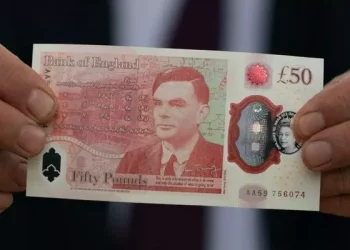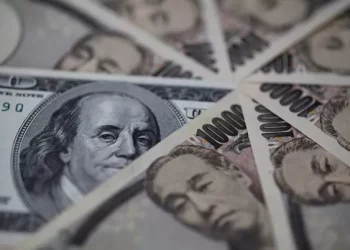In the fast-paced world of foreign exchange trading, understanding the relationship between different currencies is critical for both traders and individuals engaging in international transactions. One of the most common exchanges in the global currency market is the conversion of the euro (EUR) to the British pound (GBP). This article will explore the process of converting 55,000 euros into pounds, the factors influencing the exchange rate, and how forex traders and businesses can leverage this information in their decision-making processes.
1. Introduction to Currency Exchange
Currency exchange refers to the process of converting one country’s currency into another’s. This process takes place in the foreign exchange (forex) market, where currencies are bought and sold. The value of one currency in relation to another is determined by the exchange rate. The forex market is the largest and most liquid financial market globally, with a daily trading volume surpassing $6 trillion as of 2021.
When you are looking to exchange euros for pounds, the value of your euros in pounds will be determined by the current exchange rate between the two currencies. The exchange rate fluctuates constantly due to various economic and geopolitical factors. These fluctuations are essential for forex traders who aim to capitalize on short-term price movements to make profits.
2. The EUR/GBP Exchange Rate
The exchange rate between the euro and the British pound is represented as EUR/GBP. For example, if the EUR/GBP exchange rate is 0.85, it means that for every euro you exchange, you will receive 0.85 British pounds.
Exchange rates can fluctuate due to several factors, including:
Interest Rates: Central banks in both the Eurozone (the European Central Bank) and the United Kingdom (Bank of England) influence currency values through monetary policies, particularly interest rate adjustments. Higher interest rates typically increase a currency’s value as they attract foreign investment.
Economic Data: Economic indicators such as GDP growth, unemployment rates, and inflation can affect the demand for a currency. Strong economic data can lead to an appreciation of the currency, while weak data can have the opposite effect.
Political Events: Elections, referendums, and geopolitical tensions can lead to volatility in currency markets. The Brexit referendum, for example, caused significant fluctuations in the EUR/GBP exchange rate.
Market Sentiment: The general market perception of the euro or pound, influenced by news events, investor confidence, and global risk appetite, can also impact the exchange rate.
3. How to Convert 55,000 Euros to Pounds
To convert 55,000 euros to pounds, you need to know the current EUR/GBP exchange rate. Let’s assume the exchange rate is 0.85. To calculate how much 55,000 euros is in pounds, you would use the following formula:
Amount in pounds=Amount in euros×Exchange rate
Amount in pounds=55,000×0.85=46,750GBP
Thus, if the exchange rate is 0.85, 55,000 euros would be equivalent to 46,750 pounds.
It is important to note that exchange rates fluctuate throughout the day, meaning that the value of 55,000 euros in pounds may vary slightly depending on the time of the transaction. For individuals or businesses, it is crucial to check the most up-to-date exchange rates before making a conversion.
4. Factors Affecting the Conversion of Euros to Pounds
The value of the euro in pounds does not remain fixed. It fluctuates based on several key factors:
Central Bank Policies
The European Central Bank (ECB) and the Bank of England (BoE) play a significant role in determining the value of the euro and the pound. Central banks control the money supply through monetary policies, and they adjust interest rates to achieve macroeconomic objectives such as controlling inflation and stimulating economic growth. When a central bank raises interest rates, it makes its currency more attractive to investors, leading to an increase in the value of the currency.
For example, if the Bank of England raises interest rates while the ECB keeps its rates unchanged, the value of the pound might rise relative to the euro, making the exchange rate more favorable for converting euros into pounds.
Economic Performance
Economic indicators are essential in determining the value of a currency. Strong economic growth in the Eurozone can lead to a rise in the value of the euro, while a robust UK economy can strengthen the pound. Key indicators include GDP growth, employment levels, inflation rates, and trade balances.
For instance, if the European Union releases positive economic data, such as strong GDP growth or falling unemployment rates, the euro could appreciate against the pound. Conversely, weak data from the UK, such as lower-than-expected economic growth or a rise in unemployment, could cause the pound to depreciate, making the conversion of euros to pounds less favorable.
Political Events and Stability
Political events such as elections, referendums, and changes in government can impact the stability of a currency. Political uncertainty can cause fluctuations in exchange rates as investors react to potential changes in economic policies or trade relationships.
For example, the 2016 Brexit referendum caused significant volatility in the EUR/GBP exchange rate. The uncertainty surrounding the UK’s departure from the European Union led to a sharp depreciation of the pound against the euro, as investors anticipated potential economic disruptions.
Market Sentiment and Risk Appetite
Forex traders are also influenced by market sentiment and global risk appetite. If investors are feeling optimistic about global economic conditions, they may prefer to invest in riskier assets, including the euro. Conversely, in times of uncertainty or crisis, investors tend to move their money into safer assets like the pound, which is often seen as a stable currency.
5. How to Trade EUR/GBP in the Forex Market
For forex traders, understanding the EUR/GBP exchange rate is crucial. Forex trading involves buying one currency while selling another, and the EUR/GBP pair is one of the most commonly traded currency pairs in the world. Traders use various strategies to profit from movements in the EUR/GBP exchange rate, such as:
Technical Analysis: This involves studying historical price charts and using indicators such as moving averages, support and resistance levels, and oscillators to predict future price movements.
Fundamental Analysis: Traders who use fundamental analysis focus on economic data, news events, and central bank policies to forecast currency movements.
Sentiment Analysis: This approach looks at market sentiment, positioning, and investor behavior to determine the likely direction of the currency pair.
One of the key factors for forex traders is timing. Currency prices can fluctuate rapidly, and traders need to act quickly to take advantage of favorable exchange rate movements. This is particularly important in the highly liquid EUR/GBP market, where small fluctuations in the exchange rate can result in substantial profits or losses.
6. Currency Conversion for Individuals and Businesses
Apart from forex traders, there are many other individuals and businesses that may need to convert euros into pounds, such as tourists, expatriates, and international companies. For these individuals, there are a few options for currency conversion:
Currency Exchange Services
Currency exchange services are offered by banks, currency exchange offices, and online platforms. These services typically charge a commission or fee on top of the exchange rate, which can vary depending on the provider. It is advisable to shop around for the best exchange rate and lowest fees before converting a large sum of money.
Online Currency Conversion Tools
Many online platforms, such as XE.web and OANDA, offer real-time currency conversion calculators. These tools can be very helpful for getting an estimate of how much 55,000 euros would be worth in pounds. However, it is important to note that the rates provided by online calculators may not always reflect the exact rate you will receive from a currency exchange provider.
International Bank Transfers
When businesses or individuals need to send money internationally, they can use international bank transfers or remittance services. However, bank transfers often involve higher fees and less favorable exchange rates than currency exchange services or online platforms.
Conclusion
Understanding how much 55,000 euros is in pounds requires more than just looking at the exchange rate; it involves considering the factors that influence the EUR/GBP exchange rate, such as central bank policies, economic data, political events, and market sentiment. The foreign exchange market is constantly evolving, and exchange rates can fluctuate rapidly, so it is essential to stay informed and make decisions based on the most up-to-date information.
For businesses and individuals involved in currency conversion, it is advisable to compare different exchange rate providers and understand the fees associated with each service. For forex traders, leveraging technical and fundamental analysis, as well as managing risk effectively, is key to successful trading in the EUR/GBP currency pair.
Whether you are a business owner, an individual planning a trip, or an experienced forex trader, understanding the conversion of euros to pounds is essential for navigating the global financial landscape.
Related Topics:
























